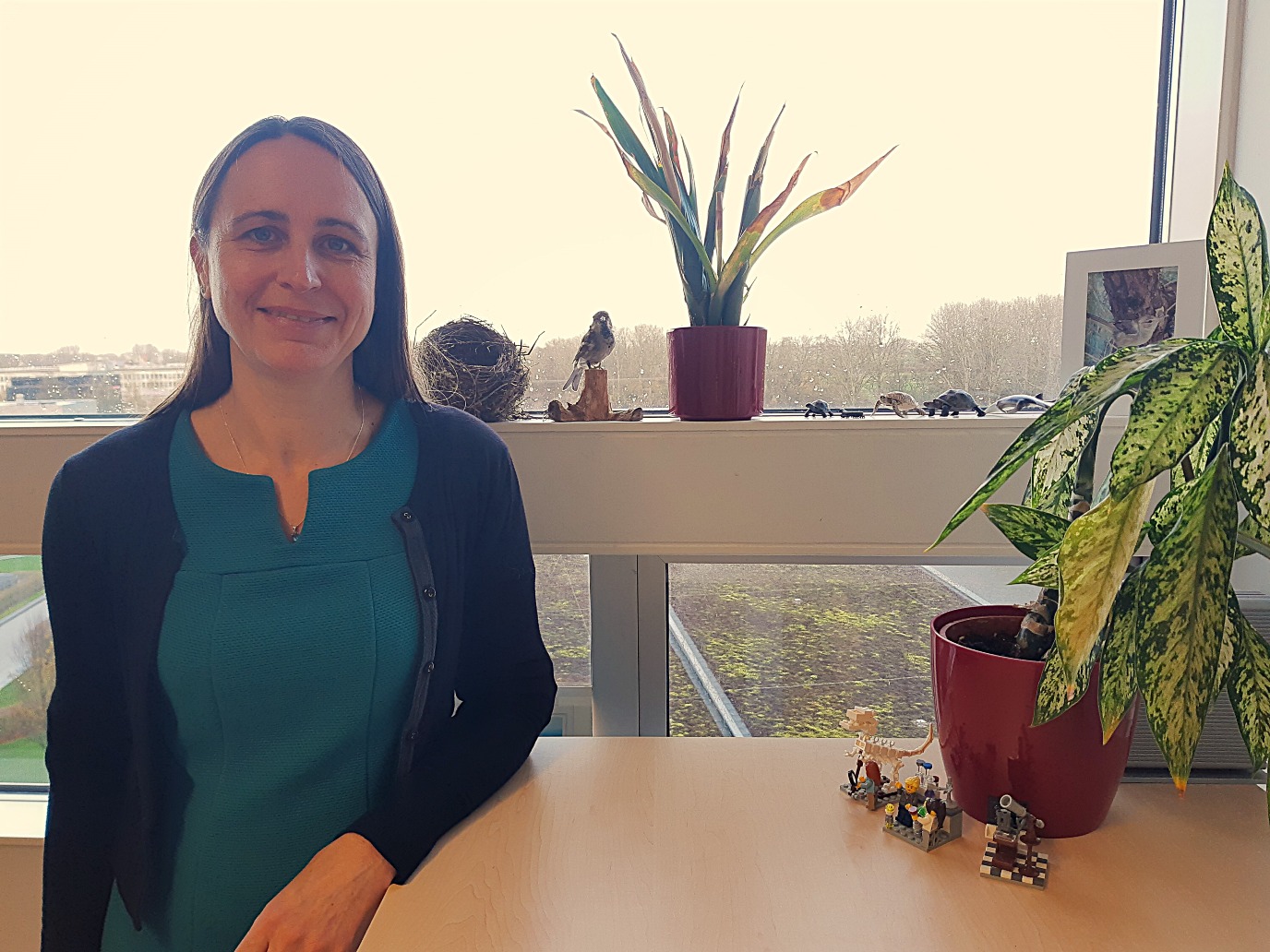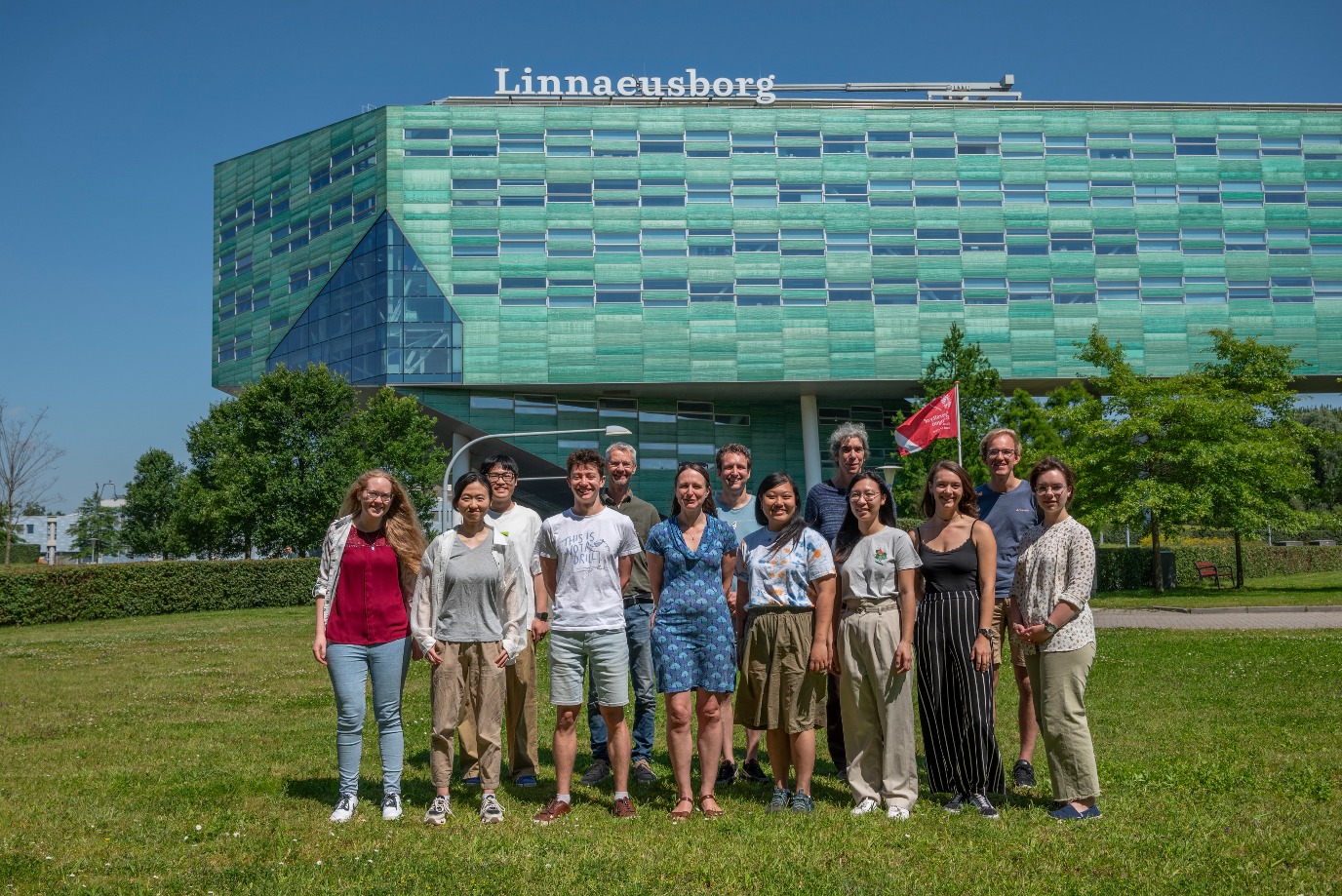Hannah Dugdale wint NWO Athena Award voor uitblinkende vrouwelijke onderzoekers
Prof. dr. Hannah Dugdale van de Faculty of Science and Engineering (RUG) is een van de twee winnaars van de NWO Athena Award. De prijs van EUR 50.000 wordt toegekend aan vrouwelijke onderzoekers in de bètawetenschappen die zich onderscheiden en daardoor rolmodellen zijn voor anderen. De jury concludeert dat Dugdale een werkelijk uniek profiel heeft: ‘Ze is een vooraanstaande wetenschapper, een leider en een rolmodel, vooral voor jonge wetenschappers.’
De Athena Award is een van de in totaal vijf prijzen die het NWO-domein Exacte en Natuurwetenschappen (ENW) jaarlijks uitreikt.

Onderzoek naar veroudering
Dugdale is hoogleraar Evolutionaire medische wetenschappen en doet onderzoek naar veroudering bij mensen en dieren. Haar onderzoek heeft belangrijke inzichten opgeleverd in de genetische, sociale, omgevings- en intergenerationele factoren die veroudering beïnvloeden. Haar doel is om kennis te genereren over hoe mensen langer en gezonder kunnen leven. ‘Als we bijvoorbeeld begrijpen hoe sociale stress veroudering veroorzaakt, kunnen we deze effecten mogelijk verzachten’, legt Dugdale uit.
Gepassioneerd voorvechter Open Science
Dugdale is erg toegewijd aan open wetenschap: ‘Het is belangrijk dat wetenschap reproduceerbaar en toegankelijk is voor iedereen,’ zegt ze. De jury noemt haar een gepassioneerd voorvechter voor Open Science. Ze ontwikkelde onder andere een innovatieve en praktische bioinformatica cursus voor master- en PhD-studenten om ze bewust te maken van het belang van het delen van kennis.
Inzet voor minderheidsgroepen
Om de vertegenwoordiging van minderheidsgroepen in de wetenschap te verbeteren zet Dugdale regelmatig een stap buiten haar eigen onderzoeksveld. Zo deed ze onderzoek naar het verschil in onderzoeksproductiviteit tussen mannelijke en vrouwelijke academici tijdens de corona pandemie. Ook onderzocht ze waarom er aanzienlijk minder vrouwelijke dan mannelijke sprekers zijn op wetenschappelijke conferenties. Daarnaast heeft ze aandacht voor andere minderheidsgroepen: ‘Het is bewezen dat kennis en wetenschap vooruitgaan in meer diverse groepen, maar ondervertegenwoordigde groepen hebben te maken met vooroordelen die hun vooruitgang belemmeren. Hier moeten we iets aan doen.’
'De prijs stimuleert me om door te gaan met mijn inspanningen op het gebied van diversiteit en inclusie. Zowel binnen de wetenschap als in de maatschappij.’
Jongeren bereiken
Dugdale brengt de kennis die ze opdoet in haar onderzoek ook naar het grote publiek. Haar outreachactiviteiten zijn vooral gericht op jongeren, zoals lessen op basisscholen. Ze schreef ook het kinderboek 'Het ei'. DIt is het succesverhaal van de instandhouding van de Seychellenrietzanger. Tegelijkertijd leert het verhaal leert over vogelbiologie, waaronder hoe deze vogels samenwerken om hun broertjes en zusjes groot te brengen.
Dugdale vindt het een eer om als rolmodel te worden beschouwd: 'De prijs stimuleert me om door te gaan met mijn inspanningen op het gebied van diversiteit en inclusie. Zowel binnen de wetenschap als in de maatschappij.’

-
Dit zijn de winnaars van de NWO Science awards 2024 (NWO nieuws)
Meer nieuws
-
17 februari 2026
De lange zoektocht naar nieuwe fysica
-
10 februari 2026
Waarom slechts een klein aantal planeten geschikt is voor leven
